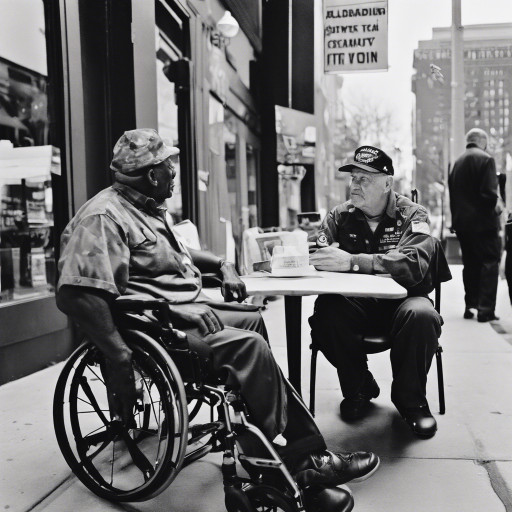Starting a business? It’s tough. Doing it as a disabled veteran? Even tougher—especially when money’s tight. Luckily, there are startup loans and grants designed specifically for veterans who’ve served and now want to build something of their own. But where do you even start? And, more importantly, how do you actually qualify?
Below, we’re diving into the best funding options—loans, grants, and alternative routes you might not have even considered.
Top Business Loan & Grant Options for Disabled Veterans
1. SBA Veterans Advantage Loan (Because the Government Loves Paperwork)
The Small Business Administration (SBA) has some solid financing options for veteran entrepreneurs. Here’s the gist:
- Loan Amount: Up to $5M (yes, million)
- Interest Rate: Market-based, but competitive
- Ownership Requirement: Business must be at least 51% veteran-owned
- Why It’s Good: Lower fees than regular SBA loans, which means more savings
2. Service-Disabled Veteran-Owned Small Business (SDVOSB) Program – Contracts, Not Cash
This one isn’t a loan, but it’s just as valuable. The federal government sets aside contracts specifically for disabled veteran-owned businesses. So if your business works with government agencies, this could be a serious advantage.
3. Hivers & Strivers – Angel Investors for Vets
If loans aren’t your thing, maybe venture capital is. Hivers & Strivers is an investment firm backing military veteran startups with:
- $250K–$1M in potential funding
- Mentorship and networking opportunities (because connections matter)
4. VA Business Grants & Microloans
The VA’s Office of Small & Disadvantaged Business Utilization (OSDBU) offers grants and microloans. These change frequently, so check their website—because free money doesn’t last forever.
5. StreetShares Foundation – Grants & Loans for Veteran Entrepreneurs
StreetShares is another option, offering:
- Loans up to $250K
- Annual grant competitions for veteran-owned businesses (yes, free money—if you win)
6. Accion Opportunity Fund – Because Not Everyone Needs $5M
If you just need a small loan to get started, Accion might work:
- Loan Amounts: $5K–$100K
- Repayment Terms: Up to 60 months
Qualifying for a Disabled Veteran Startup Business Loan (The Reality Check)
1. Prove You Served (Obviously)
Most veteran-focused programs require proof of service. That usually means:
- DD Form 214 (Your official military discharge paperwork)
- VA disability rating letter (if applying for service-disabled benefits)
2. Have a Business Plan (Or at Least Pretend You Do)
Lenders need to see a roadmap—aka, a business plan. At minimum, yours should include:
- How your business makes money
- Your target market (Who’s buying?)
- Financial projections (Even if they’re optimistic)
- How much funding you actually need—and why
3. Credit Matters (But It’s Not Everything)
- Most lenders like a credit score of 600+
- If your credit isn’t great, consider:
- A co-signer
- Applying for grants instead of loans (because free money doesn’t require good credit)
4. Consider Non-Traditional Funding (Because Banks Say No a Lot)
If loans aren’t working out, try:
- Crowdfunding (Kickstarter, GoFundMe—whatever works)
- Personal savings or investors
- Equipment financing (if your business needs gear)
Final Take: Find the Right Funding & Make It Work
A disabled veteran business loan (or grant, or investment) could be the key to launching your dream. Whether you go with an SBA loan, government contract set-aside, or just hustle your way through crowdfunding, the important thing is taking action.
And if all else fails? Get creative. Plenty of businesses started on nothing but an idea and sheer stubbornness.

